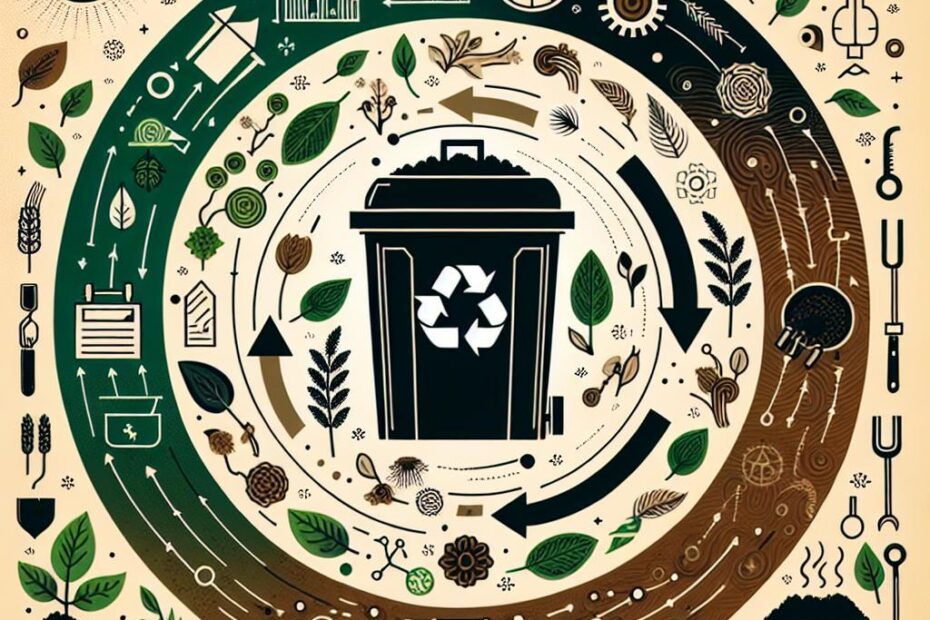Can You Use Compost as Soil?
Composting is a sustainable practice that allows organic waste to be transformed into nutrient-rich soil that can be used to nourish plants. But the question remains, can you use compost as soil? The short answer is yes, compost can be used as soil, but there are some important things to consider before doing so. In this article, we will explore the benefits of using compost as soil, practical tips for incorporating compost into your garden, and real-life case studies to illustrate the effectiveness of this eco-friendly practice.
Benefits of Using Compost as Soil
There are numerous benefits to using compost as soil in your garden or landscaping projects. Here are a few key advantages:
-
Nutrient-rich Soil: Compost is teeming with essential nutrients that plants need to thrive, such as nitrogen, phosphorus, and potassium. By using compost as soil, you can provide your plants with a steady supply of these nutrients, promoting healthy growth and strong root development.
-
Improved Soil Structure: Compost helps to improve soil structure by increasing its ability to retain moisture and nutrients. This can lead to better drainage, reduced erosion, and improved aeration, creating an optimal growing environment for your plants.
-
Reduced Need for Chemical Fertilizers: By using compost as soil, you can significantly reduce your reliance on synthetic fertilizers, which can be harmful to the environment. Compost provides a natural and sustainable alternative that nourishes the soil and promotes long-term soil health.
-
Cost-effective: Making your own compost from kitchen scraps, yard waste, and other organic materials is a cost-effective way to enrich your soil without having to purchase expensive fertilizers. By recycling organic waste into compost, you can save money and reduce your carbon footprint.
Practical Tips for Using Compost as Soil
Before incorporating compost into your garden or landscaping projects, here are some practical tips to keep in mind:
-
Mix Compost with Existing Soil: When using compost as soil, it is important to mix it thoroughly with your existing soil to ensure even distribution of nutrients. Aim for a ratio of one part compost to two parts soil for optimal plant growth.
-
Avoid Using Fresh, Unfinished Compost: Fresh, unfinished compost can contain high levels of acidity and may not be fully decomposed, which can harm your plants. Make sure your compost is aged properly and has a dark, crumbly texture before using it as soil.
-
Consider pH Levels: Test the pH levels of your soil before adding compost to ensure proper balance. Compost is typically neutral in pH, but it can slightly alter the acidity of your soil over time. Monitor pH levels regularly to maintain optimal growing conditions for your plants.
-
Apply Compost as Mulch: In addition to using compost as soil, you can also apply it as a mulch around your plants to help retain moisture, suppress weeds, and regulate soil temperature. Mulching with compost can provide additional benefits and promote overall soil health.
Real-life Case Studies
To highlight the effectiveness of using compost as soil, let’s take a look at some real-life case studies from gardeners who have experienced firsthand the benefits of composting:
-
The Smith Family: The Smith family started composting their kitchen scraps and yard waste several years ago and have since used their homemade compost to enrich their vegetable garden. They have noticed a significant improvement in plant growth, with larger harvests and healthier crops.
-
The Johnsons’ Landscaping Business: The Johnsons run a landscaping business that specializes in sustainable practices, including using compost in their projects. By incorporating compost into their soil, they have been able to create lush and vibrant landscapes for their clients, leading to increased customer satisfaction and referrals.
In conclusion, using compost as soil is a sustainable and eco-friendly practice that can benefit both your plants and the environment. By following the practical tips outlined in this article and learning from real-life case studies, you can make the most of your compost and create a thriving garden or landscape. So, gather your organic waste, start composting, and watch your plants flourish with nutrient-rich soil!
